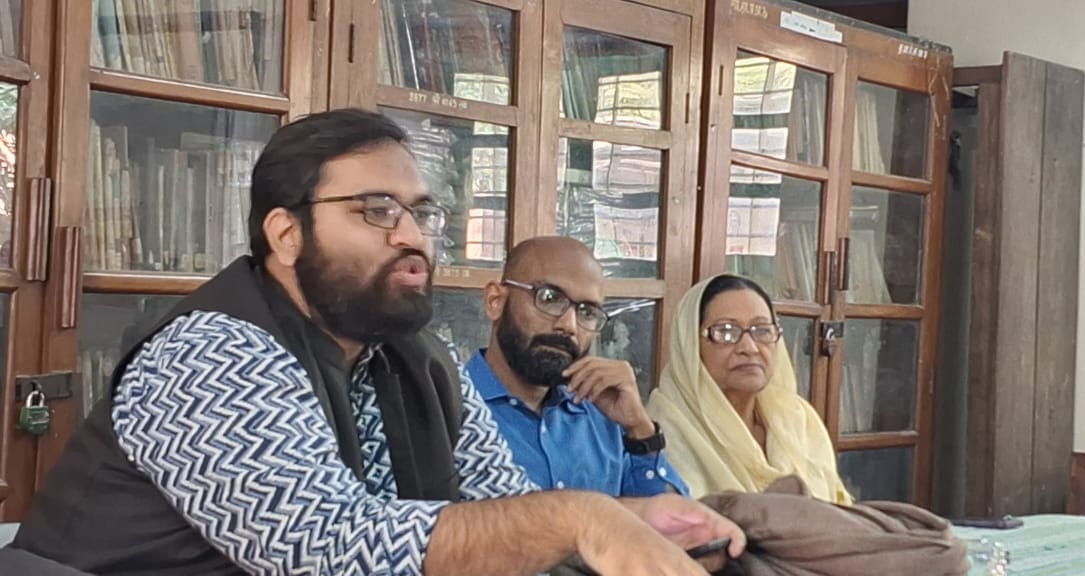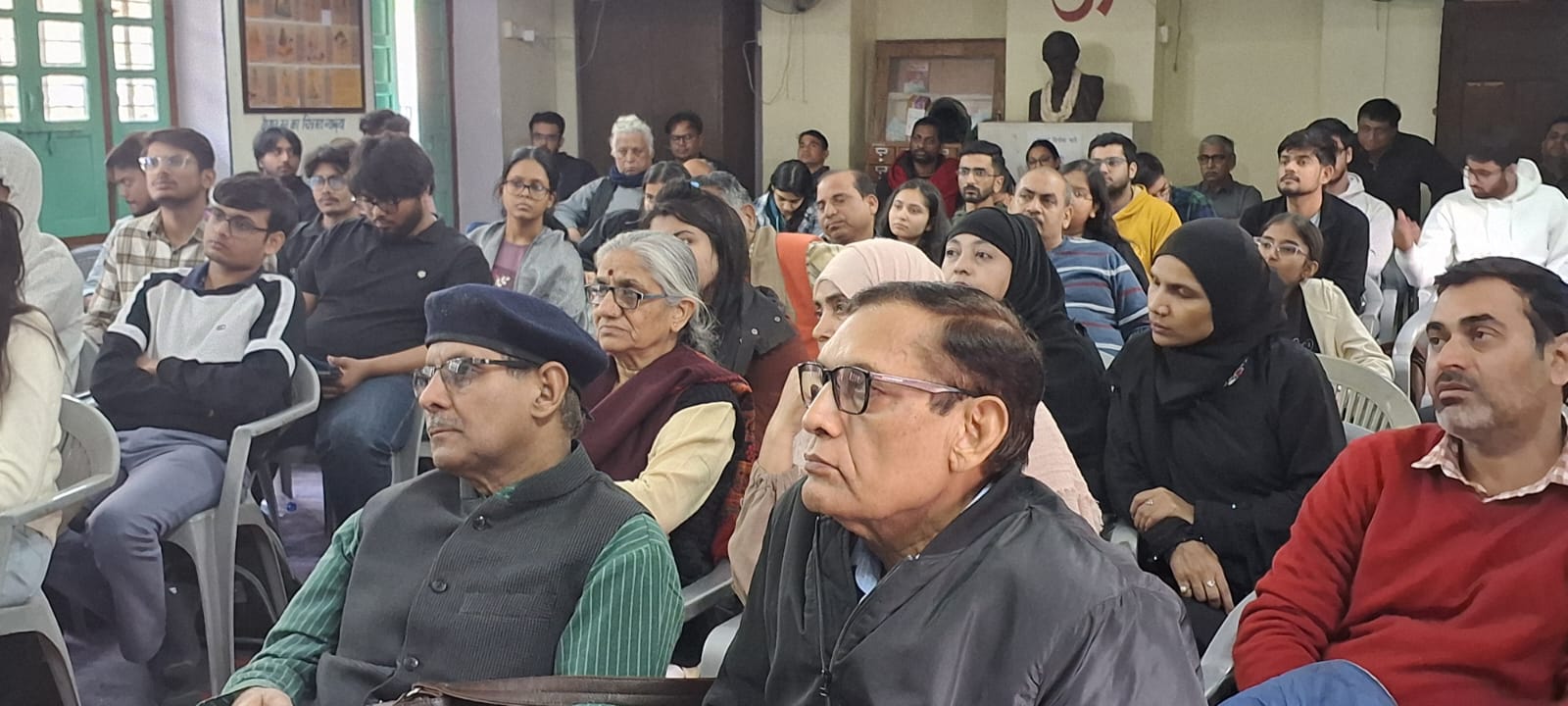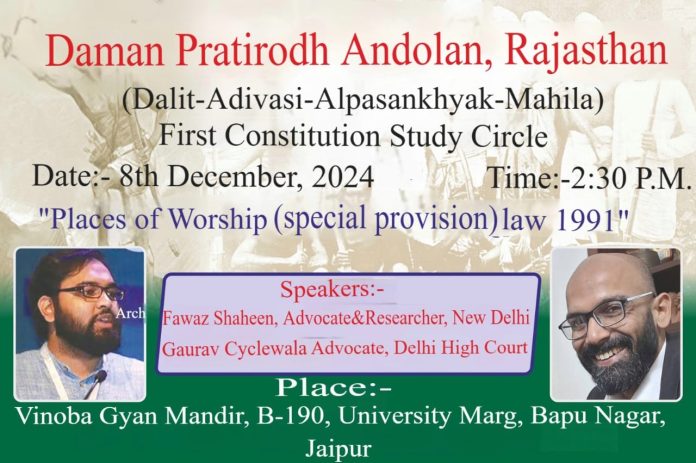– Raheem Khan
Jaipur: The Dalit-Adivasi-Minority-Women Repression Resistance Movement hosted the first Constitutional Study Circle, focusing on the importance of Places of Worship Act, 1991.
Keynote speakers, Delhi-based lawyers Fawaz Shaheen and Gaurav Saikilwala, underscored the Act’s significance in preserving the status quo of places of worship as of August 15, 1947. They highlighted Sections 3 and 4, explaining that the law prohibits altering the character of any place of worship and imposes penalties for violations.
The lawyers elaborated on the concept of the limitation period, noting that objections to structures built after 1947 must have been raised before the law’s enactment to be considered valid. Referring to the 2019 Babri Masjid verdict, they pointed out the Supreme Court’s emphasis on enforcing the Act to protect India’s cultural and historical heritage. They warned that neglecting enforcement could lead to the alteration of historic sites, erasing valuable history.
 The speakers critiqued the increasing trend of judicial magistrates conducting surveys of historical monuments based on verbal orders, citing Justice D.Y. Chandrachud’s guidance. They called for the Supreme Court to intervene and enforce the Act rigorously, halting lower courts from conducting unauthorised surveys. Additionally, they urged a swift hearing in the Gyanvapi Masjid case to uphold the Act’s spirit.
The speakers critiqued the increasing trend of judicial magistrates conducting surveys of historical monuments based on verbal orders, citing Justice D.Y. Chandrachud’s guidance. They called for the Supreme Court to intervene and enforce the Act rigorously, halting lower courts from conducting unauthorised surveys. Additionally, they urged a swift hearing in the Gyanvapi Masjid case to uphold the Act’s spirit.
The event included vibrant discussions on cases in Ajmer, Sambhal, and Gyanvapi, highlighting violations of both the 1991 Act and the Ancient Monuments and Archaeological Sites and Remains Act, 1958, particularly in Sambhal.
 Two resolutions were passed:
Two resolutions were passed:
- To demand stricter enforcement of the Places of Worship Act, 1991.
- To amend Article 25 of the Constitution to enshrine the principle of non-alteration of the character of places of worship.
The study circle drew a diverse group of participants, including youth, activists, and intellectuals, including Kavita Srivastava, Dr. Sanjay Madhav, Bhanwar Meghvanshi, Sabiha Parveen, Ritansh Azad, Sawai Singh, Sumitra Chopra, Vineet, Priyakshi Agrawal, Nishant Hussain, Jahanara, Mausuf, Brijesh Chirotiya, Ajay Sain, and others. Social worker Nishat Hussain presided over the programme.
The Dalit-Adivasi-Minority-Women Repression Resistance Movement plans to continue organising such events to promote awareness of the Constitution, its history and principles.




